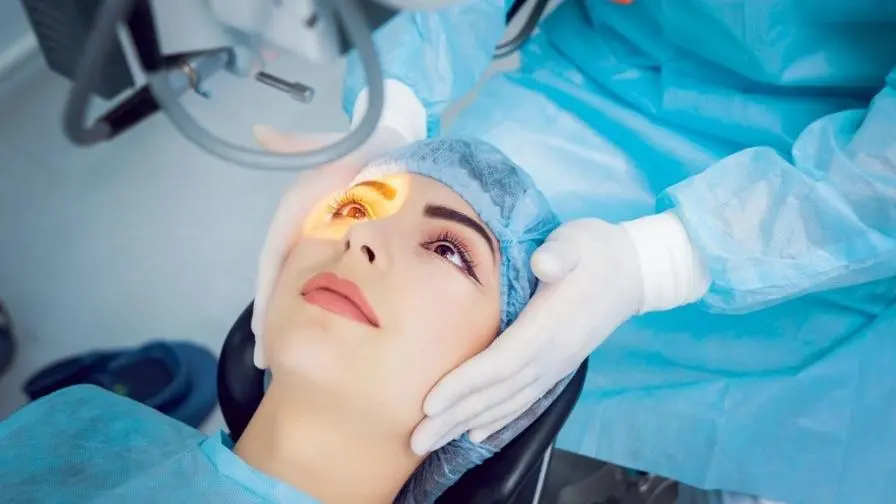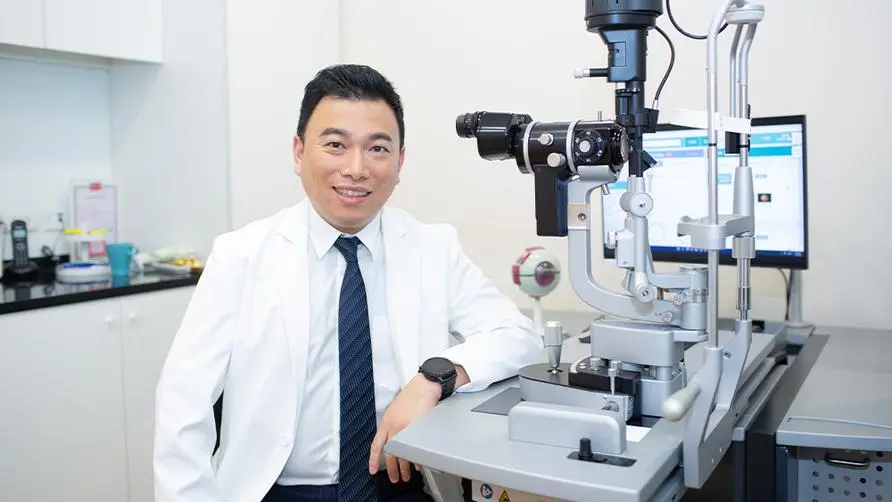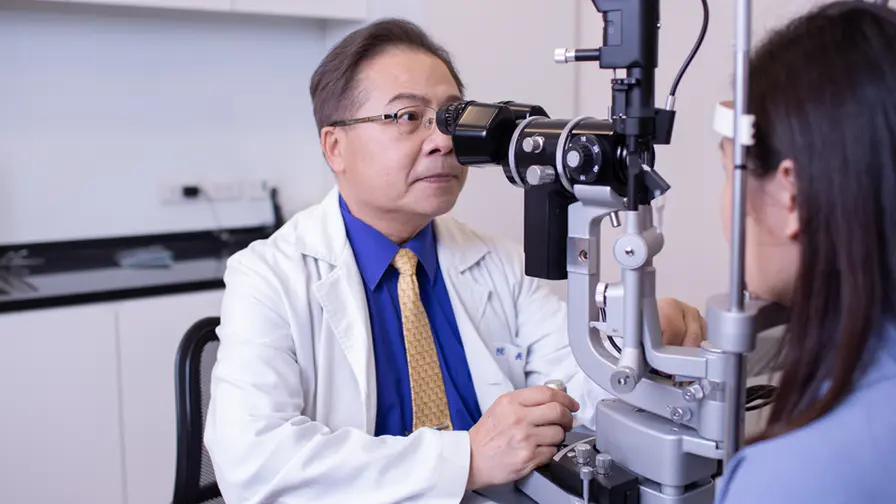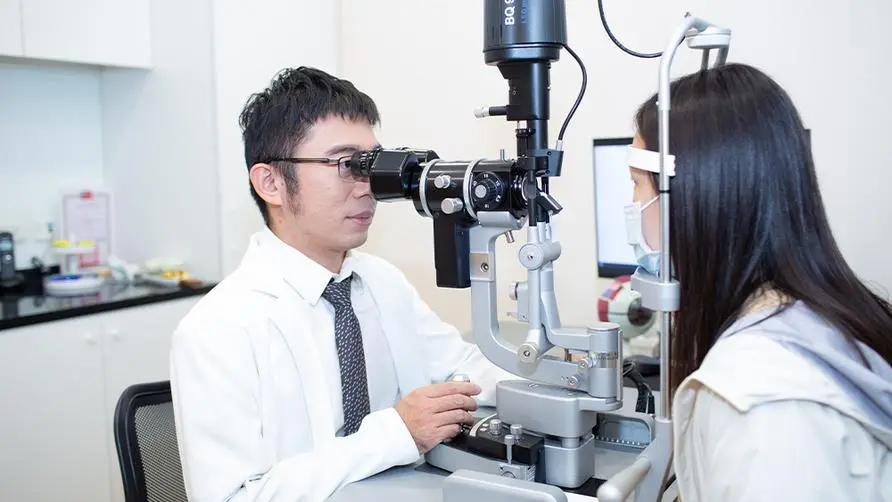Why does myopia laser "residual degree" occur? What situations require re-operation? Doctors reveal the truth: This technique can only be done once

Many people hope to get rid of the inconvenience caused by wearing glasses through “myopia laser” surgery. In an exclusive interview with “healthorn”, Dr. Lin Keru of the Taipei branch of Weishi Eye Clinic said that the principle of myopia laser surgery is to use various laser surgeries to change the thickness of the patient’s cornea and make the field of vision clearer. " In a word, it feels a bit like putting “contact lenses on the cornea”!
Can I choose a “target power” for myopia surgery? The best corrected visual acuity value is “1.0”?
Dr. Lin Keru explained that first of all, in order to ensure that the eyes are healthy and meet the conditions before evaluating myopia laser, taking the Weishi eye examination process as an example, the pre-surgery examination includes pre/post dilation, corneal curvature and thickness, Intraocular pressure, spectacle power, tear test, fundus examination, and detection of the most suitable correction power, etc. In addition to the comprehensive comparison of the degrees using more than two inspection methods, other instruments will also be used for comprehensive inspections to strictly control the surgical conditions.
“People often ask whether the target power can be ‘customized’? In fact, the more the power is removed, the better!” Generally speaking, myopia laser surgery will be performed based on the lowest power under clear vision conditions.
For people over 35 years old, especially those with mild presbyopia, it is recommended to reserve about 50 degrees for each eye. For those who are worried about presbyopia due to aging, or who are farsighted themselves, it is recommended to have a detailed discussion with a doctor before surgery and formulate a treatment strategy.
The deeper myopia is, the more likely it is that there will be “residual degree” after surgery? What situations can lead to secondary myopia?
For those who frequently suffer from myopia of 5, 600 degrees or even more than 1,000 degrees, may it be risky to undergo laser myopia surgery? Dr. Lin Keru reminds that when myopia exceeds a certain degree, the cornea may not be thick enough to be sculpted, and the degree of correction that can be corrected by surgery is limited; and those with high myopia above 600 degrees are accompanied by higher levels of cataracts, glaucoma, retinal detachment and other eye problems. Risks of disease, which will continue to exist even if the degree is successfully corrected.
However, Dr. Lin Keru emphasized that problems such as glaucoma, eye allergies, floaters, amblyopia or dry eye are not absolute contraindications. However, the above problems need to be treated to stabilize the condition, and then subsequent courses of treatment can be relatively stable. safer. In addition, those with a history of corneal disease must have their eye health checked thoroughly before surgery; those with a history of rheumatic immune diseases, chronic diseases, or those at a special stage of life, such as pregnant women, should also discuss the appropriateness of the surgery with their doctor.
Even if there is no high degree of myopia, is it possible for “residual degree” to occur after myopia laser surgery? Dr. Lin Keru pointed out that no matter how accurate the power ablation is, there may still be a certain amount of power left after the surgery. The reason is related to the difference in the degree of laser absorption of the cornea and personal physique. If myopia reappears after several years or decades, it may be related to cataracts caused by eye habits or aging of the lens.
Is it possible to “turn back” to myopia laser surgery? How much difference does the chance of success have in a second surgery?
Dr. Lin Keru said that if the slight residual degree does not affect life, further correction is usually not recommended; if the residual degree does cause blurred vision, it can also help the patient undergo secondary correction.
Taking the three mainstream myopia laser surgeries today: surface surgery SMART transPRK, deep surgery SMILE Pro and LASIK as examples, Dr. Lin Keru explained that if secondary correction is needed, it is recommended to discuss it with the surgeon and choose the surgical method before surgery. You might as well make multiple assessments. SMART transPRK can leave a thicker corneal thickness than deep surgery, which has become a key reason for many people’s evaluation.
Finally, Dr. Lin Keru reminded that myopic laser surgery only changes the corneal diopter and will not improve the retinopathy, glaucoma, cataract and other eye diseases that affect vision that are common in highly myopic people. Therefore, regular follow-up visits to the ophthalmology department and daily follow-up visits are recommended. Eye care, such as taking regular breaks, looking far away, staying away from screens and getting in touch with nature, is still necessary to develop correct eye habits.
“For many people with high myopia, myopia laser is not just about correcting the degree; many patients have reported that their quality of life has indeed improved, and their vision is no longer blurry after getting up and opening their eyes. It is recommended that regardless of the degree of myopia, it can Take the initiative to consult an ophthalmologist to develop a treatment strategy that suits you and regain your clear vision! "
Extended reading:





